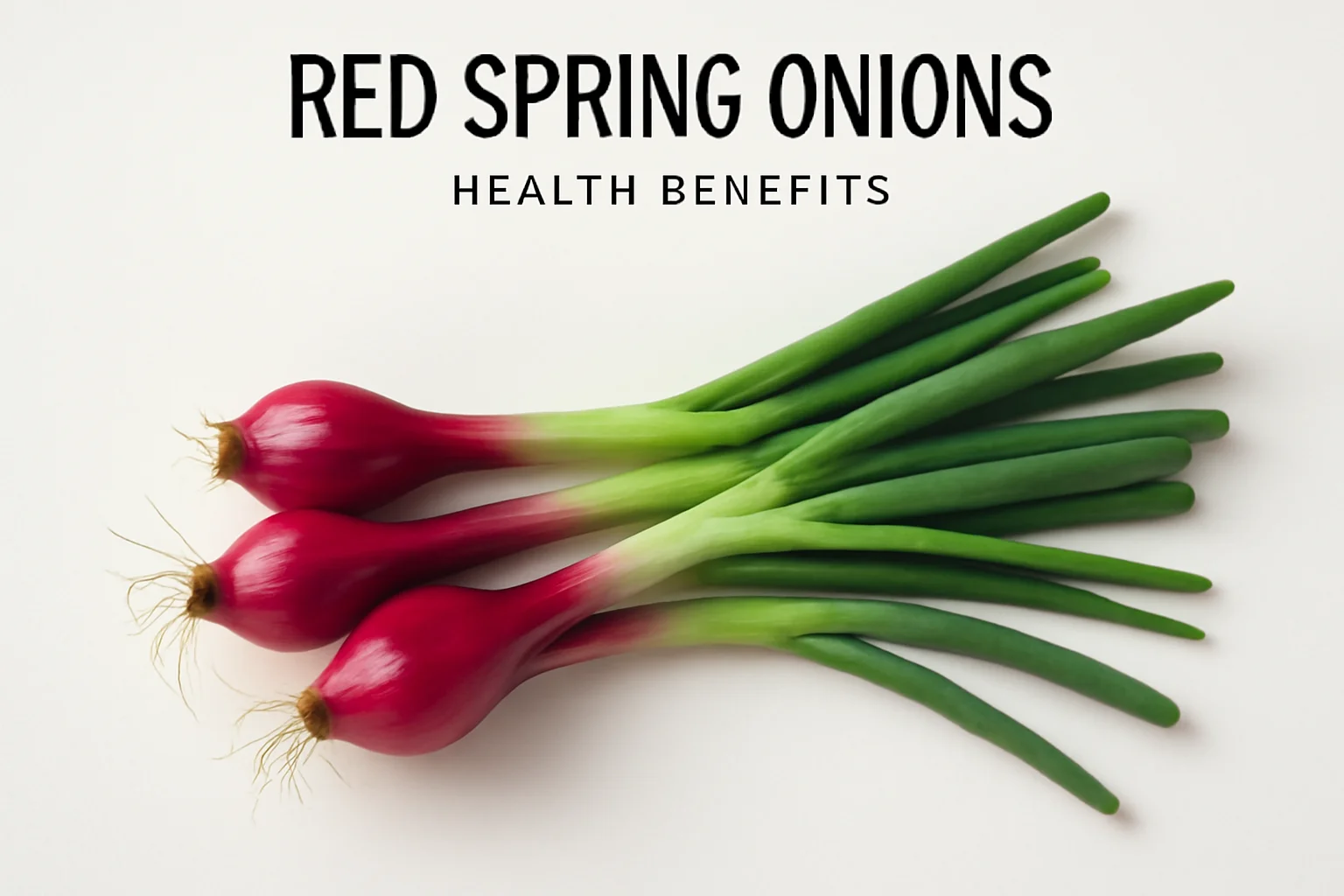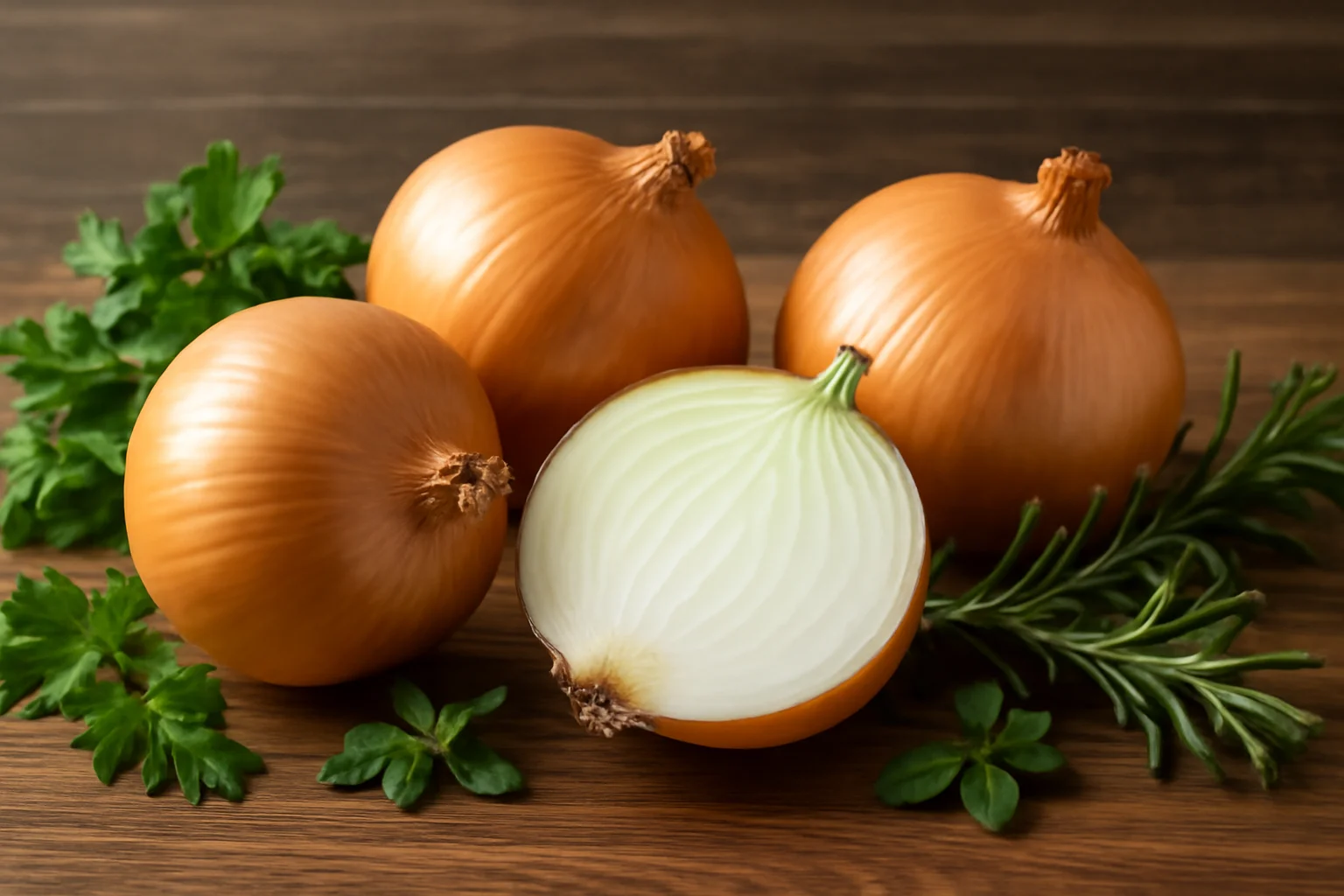
The Beneficial Effects of Red Onions on Our Health
The red onion, also known as the red bulb onion, is one of the most widely used vegetables in the world, playing a significant role in our diet not only as a flavoring agent but also as a nutritious food. This special onion variety has a rich flavor profile and colorful appearance, along with numerous beneficial effects on our health. The red onion is not just a simple ingredient; it is a true superfood packed with vitamins, minerals, and antioxidants.
For centuries, people have used onions for various medicinal purposes, and modern research confirms the health benefits of this vegetable. The versatility of red onions allows them to be used in different dishes, whether in salads, soups, or main courses. Due to their flavor and nutritional content, they have received special attention in both gastronomy and nutrition science. Moreover, red onions are easily accessible and can be found in most grocery stores and markets, making them available to anyone looking to enrich their diet.
The Nutritional Content of Red Onions
The unique nutritional content of red onions can play a prominent role in healthy eating. Onions are rich in vitamins, minerals, and antioxidants that contribute to the body’s functioning and protect cells from harmful free radicals. Red onions are an outstanding source of vitamin C, which plays an important role in strengthening the immune system, wound healing, and maintaining skin health.
In addition, red onions contain B vitamins such as B6 and folate, which are necessary for cellular metabolism and the formation of red blood cells. Among the minerals, potassium, magnesium, and calcium are present, supporting cardiovascular function and contributing to bone health.
Red onions are particularly rich in flavonoids, which are strong antioxidant compounds. Quercetin, found in red onions, not only helps reduce inflammation but may also lower the risk of cardiovascular diseases. Furthermore, flavonoids contribute to cell protection and may help prevent chronic diseases.
Besides the nutritional content, it is worth mentioning the low-calorie nature of red onions, which allows dieters to consume them freely. The high water content of onions provides a hydrating effect, while their fiber content aids digestion and promotes a feeling of fullness.
The Health Benefits of Red Onions
Consuming red onions offers numerous health benefits, many of which are supported by scientific research. One of the most important advantages is that they can help prevent cardiovascular diseases. Regular consumption of red onions may contribute to lowering blood pressure and normalizing cholesterol levels, thereby reducing the risk of heart attacks and strokes.
Quercetin, one of the main antioxidant compounds in red onions, has anti-inflammatory properties, which can help in the treatment of chronic inflammatory conditions such as arthritis. Reducing inflammation can improve the overall health of the body and may also help alleviate pain.
Additionally, red onions may assist in managing diabetes. Some studies have shown that onion consumption can improve insulin sensitivity and help stabilize blood sugar levels. This is especially important for those suffering from diabetes, as maintaining proper blood sugar levels is essential for health.
Red onions also possess antibacterial and antifungal properties, which can help prevent and treat various infections. Regular consumption of onions may strengthen the immune system, making the body more resilient against various diseases.
Using Red Onions in the Kitchen
The versatility of red onions allows them to be used in countless dishes. Their flavor is sweeter and milder than that of traditional white onions, making them a perfect addition to salads, sandwiches, and various meals. Consuming them raw is ideal for preserving nutrients and flavors.
In salads, red onions not only add flavor but also provide a beautiful color to the dish. They pair particularly well with tomatoes, cucumbers, and other vegetables, allowing for the creation of fresh, crunchy salads. The sharp flavor of onions complements creamy dressings and enriches the taste of salads.
When cooking, red onions are also a great choice. They can be used to make soups, stews, or even sautéed vegetables. During cooking, the sweet flavor of onions expands even more, adding pleasant taste to dishes. Roasted or grilled red onions impart a unique flavor to meat dishes and can also be a fantastic accompaniment to vegetables.
It is important to note that the skin of red onions should not be discarded, as it is also full of valuable nutrients, including antioxidants. The onion skin can be used in soups or stews, providing even more health benefits to our bodies.
Overall, red onions are not only delicious and nutritious but also versatile in the kitchen, making it worthwhile to incorporate them regularly into our diets.
Warning: This article does not constitute medical advice. In case of health issues, everyone should follow their doctor’s advice.

